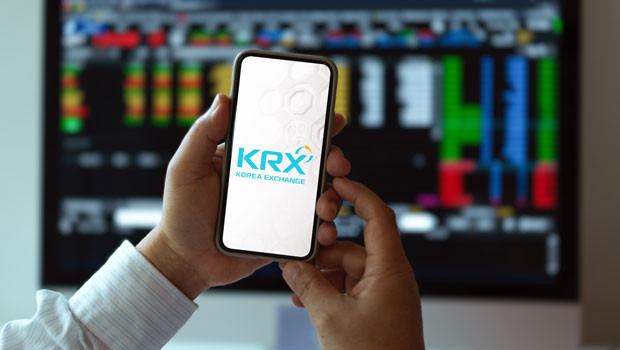Asia report: Stocks slip as investors digest local data, US debate

Asia-Pacific markets took a downturn on Wednesday, with Japan's Nikkei 225 leading losses in the region, after the first debate between US presidential candidates Kamala Harris and Donald Trump overnight.
Investors were also digesting fresh data from Japan and South Korea, including the latter recording its lowest unemployment rate since the dataset began.
“Asian markets experienced a decline as a result of the increase in bond prices and mixed signals from Wall Street, driven by economic concerns in anticipation of the US inflation data,” said TickMill market analyst Patrick Munnelly.
“The yen reached its strongest level against the dollar since January, as Bank of Japan policymaker Nakagawa declared that the central bank would continue to adjust the level of easing.
“The BoJ decision is expected to be made next week, with the majority of economists predicting that it will delay the next rate hike until December or January.”
Munnelly noted that benchmarks in Japan and Hong Kong led declines for the third consecutive session.
“The Nikkei 225 is trading below the 35,900 handle, with index heavyweights and financial equities leading the way lower.”
Markets in the red across the Asia-Pacific region
Japan's benchmark Nikkei 225 dropped by 1.49% to 35,619.77, marking a continuation of its week-long losing streak.
Tokyo Gas, Amada, and Osaka Gas were among the hardest-hit stocks, falling by 5.6%, 5.19%, and 5.06%, respectively.
The broader Topix index followed suit, declining 1.78% to 2,530.67.
China’s markets were mixed, as the Shanghai Composite Index slipped by 0.82% to 2,721.80, but the Shenzhen Component rose 0.39% to 8,105.38.
Notably, Dazhong Transportation Group, Triumph Science & Technology, and Shanghai Join Buy all plummeted around 10%.
In Hong Kong, the Hang Seng Index fell by 0.73% to 17,108.71, weighed down by losses in China Resources Power, Shenzhou International Group, and Li Ning Co, which saw declines of 5.66%, 4.86%, and 4.12%, respectively.
South Korea’s Kospi 100 dropped 0.9% to 2,528.72.
Despite a report from Statistics Korea showing unemployment fell to its lowest level since 1999, financial stocks dragged the index lower.
Hana Financial fell 6.5%, while Shinhan Financial Group and KB Financial Group declined by 6.18% and 6.03%, respectively.
Australia’s S&P/ASX 200 slid 0.3% to 7,987.90, with tech and mining stocks leading the losses.
NextDC tumbled 5.55%, Appen fell 4.48%, and Resolute Mining dropped 3.05%.
New Zealand's S&P/NZX 50 was flat, down marginally by 0.004% to 12,632.35.
KMD Brands, Mercury NZ, and Contact Energy saw losses ranging from 3.2% to 5.77%.
In the currency market, the dollar was last down 0.62% on the yen at JPY 141.56, as it slipped 0.11% against the Aussie to AUD 1.5015.
The greenback did manage gains of 0.14% on the Kiwi, however, last changing hands at NZD 1.6282.
Oil prices were in the green, with Brent crude futures last up 2.43% on ICE at $70.87 per barrel, and the NYMEX quote for West Texas Intermediate climbing 2.72% to $67.54.
Japan business sentiment dips, South Korea unemployment reaches historic low
In economic news, business sentiment in Japan took a hit in September, with confidence among large manufacturers falling to a seven-month low, according to the latest Reuters Tankan survey.
The index dipped to a reading of +4, down from +10 in August, signalling a weakening outlook for the sector.
Non-manufacturers also saw a decline in sentiment, dropping to +23 from +24, marking the third consecutive month of downturn for service-related industries.
Meanwhile, South Korea's labour market showed strength, as unemployment fell to 2.4% in August - its lowest level since data collection began in 1999, according to Statistics Korea.
In monetary policy, Bank of Japan board member Junko Nakagawa said the central bank remained committed to raising interest rates if the economy and inflation align with forecasts.
On the international front, investors also monitored the US presidential race following the debate between Republican nominee Donald Trump and Democratic vice president Kamala Harris.
With no agreement on a second debate, it could be the candidates' sole direct confrontation before Election Day.
Reporting by Josh White for Sharecast.com.